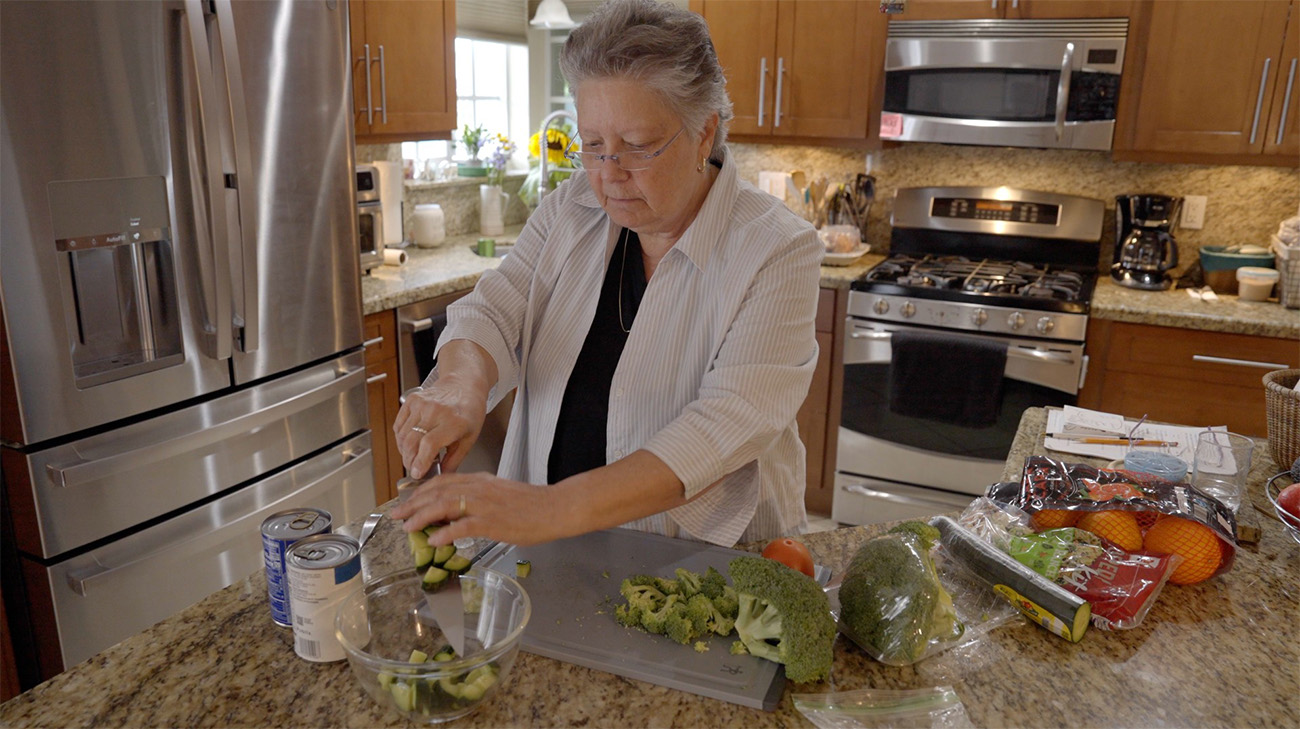Donna Marie Caruso, 70, retired from her 30-year teaching career soon after starting treatment for rectal cancer in November 2020. The native of Boston had been vigilant in doing what she could to prevent and screen for colorectal cancer because it runs in her big Italian family. Her vigilance paid off, as she credits a colonoscopy for catching the cancer and saving her life.
Donna and her wife, both former teachers in Broward County, moved closer to Cleveland Clinic Weston Hospital before Donna started treatment. While she is grateful that her doctors at Cleveland Clinic in Florida – Colorectal Surgeon Giovanna DaSilva, MD, and Oncologist Tiffany George, MD, – were able to remove and treat her disease through surgery, radiation and chemotherapy, she has been dealing with a condition called low anterior resection syndrome since the surgery and it has taken a toll on her quality of life.
LARS, according to Marylise Boutros, MD, a colorectal surgeon at Weston Hospital, is a constellation of difficult symptoms regarding bowel movements that happens after surgery on the left side of the colon or the rectum. Often, the removal of cancer or diverticular disease involves the removal of a segment of the left colon or the rectum or both. LARS can occur if the sphincter and anus are able to be spared.
These important advances in medicine have improved the ability of surgeons to remove cancer or diverticular disease in the lower colon. With that progress, however, has come an increasing number of cases of LARS.
“Often patients are not counseled or warned about it,” Dr. Boutros says. “They are cured and recover from the operation. They are supposed to go back to work, yet they are not able to enjoy life.”
Donna was one of those people. She found it hard to leave the house because of needing to use the bathroom so often, and because of fecal incontinence. The condition was causing her anxiety and limiting her ability to make long-term plans.
She sought help through a support group at Cleveland Clinic in Florida.
“As soon as we started talking, I thought I was going to start crying because I knew right away that they were very empathetic people and very knowledgeable people about LARS. They understand the issues and daily struggles.”

Dr. Boutros, who had been witnessing the struggles many of her patients had with LARS, organized the group, which includes herself, a nurse practitioner, a biofeedback therapist, a physical therapist and a nutritionist.
Members of the support group, she says, assist in normalizing the symptoms that patients are having and provide tips and tricks to manage LARS.
“I was so happy there was a doctor at Cleveland Clinic who specializes in LARS,” Donna says of Dr. Boutros. “As soon as we started talking, I thought I was going to start crying because I knew right away that they were very empathetic people and very knowledgeable people about LARS. They understand the issues and daily struggles.”
Donna has found the support group meetings to be beneficial in helping her manage her symptoms and her overall well-being has improved.
“It’s a place where you can go and ask the hard questions,” Donna says. “The communication is incredible between the patients. And I like that those running it are professionals. They are medical people trained to deal with my side effects. I’m so much better now.”
Despite the difficult road she has been on, Donna remains positive and enjoys activities like walking and quilting. She looks forward to getting back to cooking and hosting gatherings and to traveling abroad with her sisters, her wife and her daughters. She intends to enjoy her retirement to its fullest.
Related Institutes: Digestive Disease & Surgery Institute

